#America Latina
Explore tagged Tumblr posts
Text
Gringo is a slur discourse mood board










#eu perdi o trem dessa discussão e ia esperar o inevitável próximo round para postar#mas em honra da estreia do sindicato br no Tumblr e da minha falta de paciência vai hoje mesmo#rapha rambles#latam#gringo#brasil#latin america#America latina#abya yala
552 notes
·
View notes
Text



Taxco, Guerrero, Mexico in 1948 & 1952.
Scanned Vintage Kodachrome slide photography of various location in and around Taxco, Mexico photographed in 1948 & 1952 by an unknown person.
Photos by @theslidesproject
#taxco#mexico#méxico#latin america#america latina#vintage photography#architecture#people#vintage#vintage photos#mexican#1948#1952#1940s#1940's#40s#40's#50s#1950s#1950's#50's#children
169 notes
·
View notes
Text








O lado direito de seis autorretratos de Frida Kahlo mostrando a fauna e flora. (o primeiro quadro se chama Minha Ama e Eu e você pode entender o seu significado clicando aqui.)
-
The right side of six self-portrait of Frida Kahlo showing flora and fauna.
#Frida Kahlo#arte moderna#mulheres pintoras#surrealismo#fauna silvestre#fauna and flora#flores#animal painting#america latina#feminism#verde
107 notes
·
View notes
Text










Intervenção e rua. Buenos Aires. Dez 24.
#fotografia analogica#fotografia#photography#analogical#analogic film#analogic photography#art#artwork#latin america#america latina#argentina#buenos aires#palermo#street style#street photography#street art#urban photography#city photography#cityscape#urban landscape#street fashion#streetwear
25 notes
·
View notes
Text
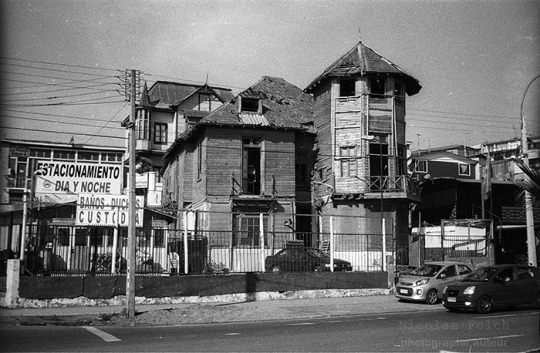
ruinas estacionadas, Cartagena, Chile.
#chile#analogue photography#cartagena#house#america latina#urban#portfolio#human#street photography#fotografía análoga#fotografia callejera#black and white photography#bnwmood#blanco y negro#city#35mm#bnw society#film photography
493 notes
·
View notes
Text
Subconciously, we see an attack on ourselves and our beliefs as a threat and we attempt to block with a counter-stance. But it is not enough to stand on the opposite riverbank, shouting questions, challenging patriarchal white conventions. A counter-stance locks one into a duel of oppressor and oppressed; locked in mortal combat, both are reduced to a common denominator of violence. The counter-stance refutes the dominant culture's views and beliefs, and for this, it is proudly defiant. All reaction is limited by, and dependent on, what it is reacting against. Because the counter-stance stems from a problem with authority - outer as well as inner - it's a step toward liberation from cultural domination. But it is not a way of life. At some point, on our way to a new consciousness, we will have to leave the opposite bank, the split between two mortal combatants somehow healed so that we are on both shores at once and, at once, see through serpent and eagle eyes. Or perhaps we will decide to disengage from the dominant culture, write it off altogether as a lost cause, and cross the border into a wholly new and separate territory. Or we might go another route. The possibilities are numerous once we decide to act and not react.
— Gloria Anzaldua, “La concencia de la mestiza”
Follow Diary of a Philosopher for more quotes!
#gloria anzaldua#La concencia de la mestiza#quotes#book quotes#studyblr#gradblr#literature quotes#lit quotes#multiculturalism#latine#latin#latam#latin america#dark academia#quote#academia#chaotic academia#philosophy#philosophy quotes#south america#america latina#globalization#polarization#politics#divisions#colonialism#decolonial practices#decolonization#decolonialism#decolonize your mind
69 notes
·
View notes
Text

#Rio de Janeiro#Brasil#Brazil#Latin america#America latina#latinoamerica#latino america#Rio sul#carioca#rj#021#rio
344 notes
·
View notes
Text
Nunca se esqueça: Não importa o quão ruim você seja na cozinha, você nunca vai ser tão ruim quanto um TikToker estadunidense
#brasileiro#brazilian#brasil#brazil#brasil sil sil#o melhor do brasil é o brasileiro#latin america#latinoamérica#america latina#brblr#tumbrasil
30 notes
·
View notes
Text



05 / 02 / 2024
#photography#my photos#my artwork#fotografía original#fotografia#fotógrafo#photo of the day#argentina#artista#artista argentino#photographers#photographers on tumblr#naturaleza#nature#mariposa#butterfly#photo on tumblr#america latina#latinoamerican#latinoamericano#nature core#aesthetic#inspiration#butterflies#pretty#Strymon eurytulus
23 notes
·
View notes
Text

stopping by your dash to tell you about PL 1904, a law project in Brazil that was passed in the chamber of deputees to charge anyone who aborts beyond 22 weeks of gestation to HOMICIDE.
make some noise about this
58 notes
·
View notes
Text

@/hwasatanas on twitter ✨
#tumblr girls#brazil#brasil#girlblogging#girl blogger#latin girls#america latina#argentina#Argentina#Belize#Bolívia#Chile#Colômbia#Costa Rica#Equador#El Salvador#Guatemala.#brasileiros#this is what makes us girls#pt br
21 notes
·
View notes
Photo



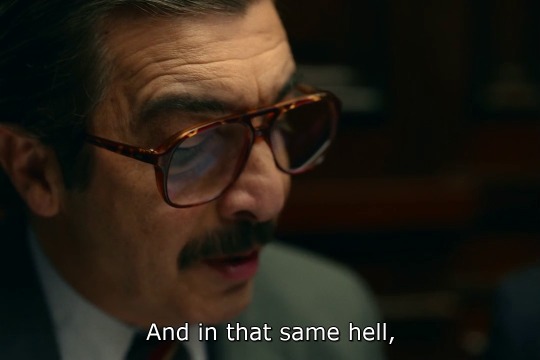



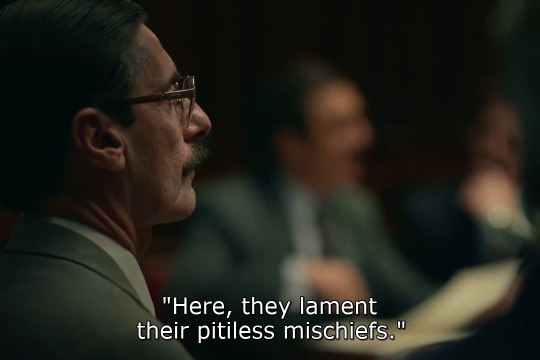
Argentina, 1985 (Santiago Mitre, 2022)
#Argentina 1985#Santiago Mitre#Latin America#dictatorship#películas argentinas#2020s cinema#dictators#Guerra Sucia#Ultima dictadura cívico-militar#Operation Condor#Montoneros#Armando Lambruschini#Jorge Videla#Orlando Agosti#verdad#Emilio Massera#Roberto Viola#America Latina#Plan Cóndor#Julio César Strassera#desaparecidos#Raúl Alfonsín#ESMA#Proceso de Reorganización Nacional#Conadep#Nunca Más#Luis Moreno Ocampo#Operación Cóndor#derechos humanos#terrorismo de Estado
84 notes
·
View notes
Text







Buenos Aires, Argentina
#buenos aires#argentina#south america#america latina#latin america#city#cityscape#city life#architecture#buildings#on the street#street photography#street life#street art#graffiti#graffiti art#street artist#guitar
113 notes
·
View notes
Text
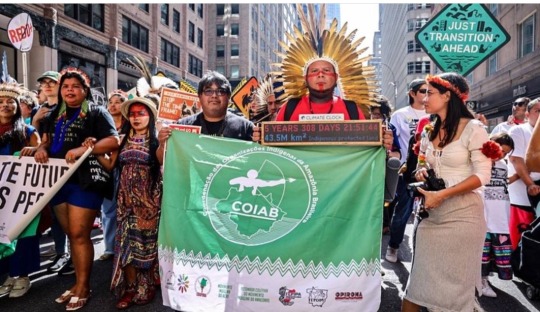
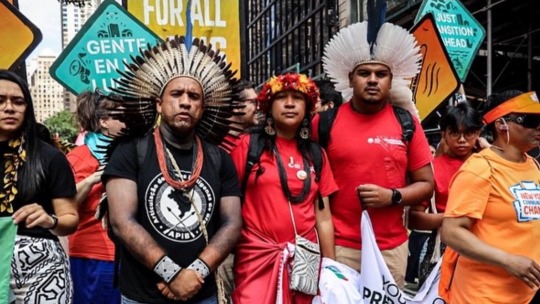
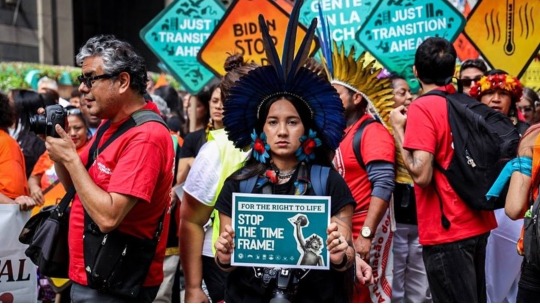
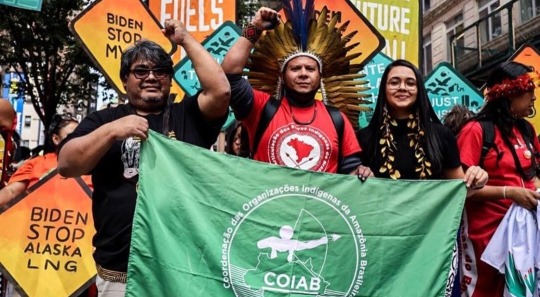
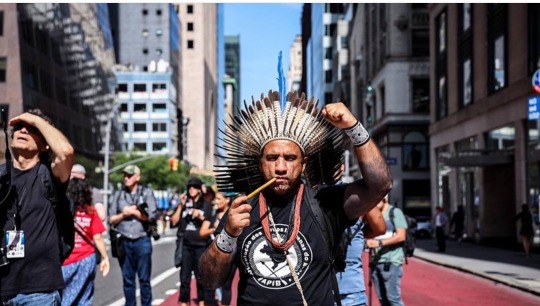
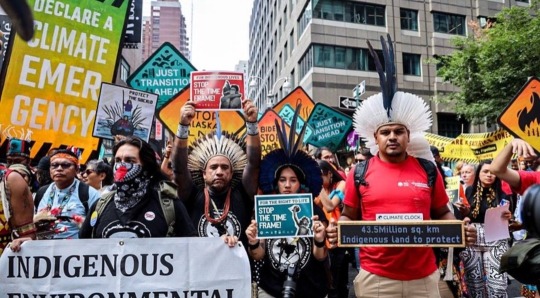
"Trial scheduled for September 20th at the Supreme Federal Court may determine the future of Indigenous Lands in Brazilian territory and be crucial for the global climate. The indigenous movement is mobilizing across Brazil, and an indigenous delegation from Apib is in New York during Climate Week to strengthen the international mobilization campaign in defense of Indigenous Lands rights."
"We are on the land, and the land is within us. If the land dies, we as indigenous peoples die."
The Articulação dos Povos Indígenas do Brasil (Articulation of Indigenous Peoples of Brazil — APIB) is calling for nationwide mobilizations this week and participating in the New York Climate Week to alert the world to the risks of the Supreme Federal Court (STF) judgment scheduled for September 20th. The court will vote on the legitimacy of the legal concept known as the "Temporal Framework," advocated by the Brazilian agribusiness, which could reevaluate Indigenous Land demarcations and impact global climate crisis mitigation efforts.
The Temporal Framework suggests that only indigenous people who can prove they were living on the land in 1988, the same year the Federal Constitution was created, should have rights to the land. This disregards the forced displacements of hundreds of indigenous groups who could only reclaim their traditional lands after Brazil's redemocratization in the late 1980s.
This week, the 15th edition of Climate Week is taking place in New York from September 17th to 24th, alongside the 78th Session of the United Nations General Assembly from September 19th to 23rd, which will feature a speech by President Lula during its opening. A delegation of 10 indigenous leaders is in New York to participate in Climate Week's activities. The international mobilization's goal is to emphasize to the world that the Temporal Framework is a threat to the lives of Brazil's indigenous peoples and could exacerbate the climate crisis, as Indigenous Lands serve as a reservoir of life on the planet.
Apib and its regional organizations are reinforcing mobilizations in territories, cities, and Brasília against the Temporal Framework on September 20th. The goal is to monitor the trial and strengthen the next steps of the indigenous movement's fight. The organizations within Apib mobilized over 220 protests in 21 states, including the Federal District, between May and June.
Five Supreme Federal Court (STF) justices are yet to vote in the trial. The current tally stands at four votes against the Temporal Framework thesis and two in favor. Justices Edson Fachin, Alexandre de Moraes, Cristiano Zanin, and Luís Roberto Barroso have expressed opposition to the agribusiness-backed thesis, while the only favorable votes came from justices appointed by former President Jair Bolsonaro, André Mendonça, and Nunes Marques.
On the same day as the STF vote, the Brazilian Senate attempts to put the Temporal Framework into law. The ruralist caucus in Congress seeks to create tension with the Brazilian judiciary since there is a possibility that the STF may invalidate the Temporal Framework thesis.
In addition to the Temporal Framework, Bill 2903 proposes other setbacks to the rights of indigenous peoples, such as the construction of highways and hydroelectric plants in indigenous territories without free, prior, and informed consent from affected communities. The proposal also aims to allow farmers to enter production contracts with indigenous people, violating the rights of indigenous peoples to the exclusive use of demarcated territories.
While some falsely claim that "there is too much land for too few indigenous people in Brazil," Apib counters that there is too much land for too few farmers and that agribusiness promotes the illegal invasion of indigenous lands. The entity asserts,
"There is no solution to the climate crisis without guaranteeing the rights of indigenous peoples and the demarcation of their territories."
Currently, nearly half of Brazil's land is in the hands of rural producers. Of the total land in the country, 41% corresponds to rural properties, 13.7% to indigenous lands, and 45.2% to other purposes, according to data published in the Official Gazette of the Union. Indigenous Lands are a guarantee of life for indigenous peoples and for all of humanity, which depends on the climate's future.
"As worsening climate crisis unfolds, many will be marked in history as accomplices to the new colonialism threatening the survival of us, indigenous peoples who inhabit the vast territory known as Brazil, and the future of all humanity because there is no solution to the climate crisis without the involvement of indigenous peoples," emphasizes Dinamam Tuxá.
Key activities of Apib during the 15th edition of Climate Week from September 17th to 24th:
On September 17th, Apib participated in the Climate Week march through the streets of New York in support of the Fight Fossil Fuel Strike. The indigenous delegation from Apib denounced the threat posed by the Temporal Framework thesis, highlighted the indigenous emergency situation concerning extractive industries and agribusiness that lead to multiple instances of violence in our territories. Additionally, as part of the Climate Week agenda, it's worth noting that Apib's executive coordinators Kleber Karipuna, Dinamam Tuxá, and other members of the indigenous delegation will participate in a talk on September 19th titled "FCLP: Rights, Participation, and Benefits for Indigenous Peoples and Local Communities in Forest Climate Financing," organized by the Forest and Climate Leaders Partnership. On September 22nd, a portion of the delegation will be present at a dialogue co-organized with H.E Razan Al Mubarak, the current president of the International Union for Conservation of Nature, to assess progress in the COP28 agenda with the aim of collectively identifying meaningful and respectful ways for Indigenous Peoples to engage in the COP.
About APIB
The Articulation of Indigenous Peoples of Brazil (Apib) is a nationally recognized entity within the indigenous movement in Brazil, created from the grassroots up. It brings together seven regional indigenous organizations (Apoinme, ArpinSudeste, ArpinSul, Aty Guasu, Conselho Terena, Coaib, and Comissão Guarani Yvyrupa) and was founded with the purpose of strengthening the unity of our peoples, fostering coordination among different regions and indigenous organizations across the country, as well as mobilizing indigenous peoples and organizations against threats and infringements on indigenous rights.
Support/donate to APIB
APIB Instagram page
APIB Website
#yara.txt#brasil#brazil#latin america#america latina#south america#brazilian politics#brazilian indigenous people#indigenous people#indigenous#native american#native women#first nations#ndn#ndn tag#ndn tumblr#latinoamerica#environmentalism#climate crisis#climate emergency#nature#naturism#naturist#anti capitalism#capitalism#anti colonialism#anti colonization#colonialism#colonization#neocolonialism
189 notes
·
View notes
Text

WELCOME TO NOVELERAS! noveleras is a sourceblog dedicated to bringing you content from your favorite telenovelas, shows and actors from américa latina. we're tracking #noveleras ♡ we're looking for members and affiliates!
#noveleras#telenovelas#telenovela#novelas#sourceblog#brasil#argentina#mexico#america latina#latin america#latinos
50 notes
·
View notes